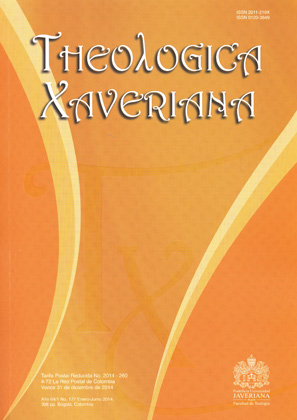Abstract
The Johannine communities represent a distinct hermeneutic movement in the complex world of New Testament books. It is crystal clear that the principle of subsidiarity is present in St. John’s gospel, as I have shown in previous works. “After seeing the relationships between the Father and the Son, the Son of God and his beloved disciple, or the Son of God and his disciples, there is no doubt that in St. John’s texts there is a community that sees these relationships –essentially relations of love– as subsidiarity.” Based on a contemporary ecclesiological reflection about the topic, this paper aims at developing the ideas related to this principle and contained in Chapter 5 of John’s Gospel.
This journal is registered under a Creative Commons Attribution 4.0 International Public License. Thus, this work may be reproduced, distributed, and publicly shared in digital format, as long as the names of the authors and Pontificia Universidad Javeriana are acknowledged. Others are allowed to quote, adapt, transform, auto-archive, republish, and create based on this material, for any purpose (even commercial ones), provided the authorship is duly acknowledged, a link to the original work is provided, and it is specified if changes have been made. Pontificia Universidad Javeriana does not hold the rights of published works and the authors are solely responsible for the contents of their works; they keep the moral, intellectual, privacy, and publicity rights.
Approving the intervention of the work (review, copy-editing, translation, layout) and the following outreach, are granted through an use license and not through an assignment of rights. This means the journal and Pontificia Universidad Javeriana cannot be held responsible for any ethical malpractice by the authors. As a consequence of the protection granted by the use license, the journal is not required to publish recantations or modify information already published, unless the errata stems from the editorial management process. Publishing contents in this journal does not generate royalties for contributors.


